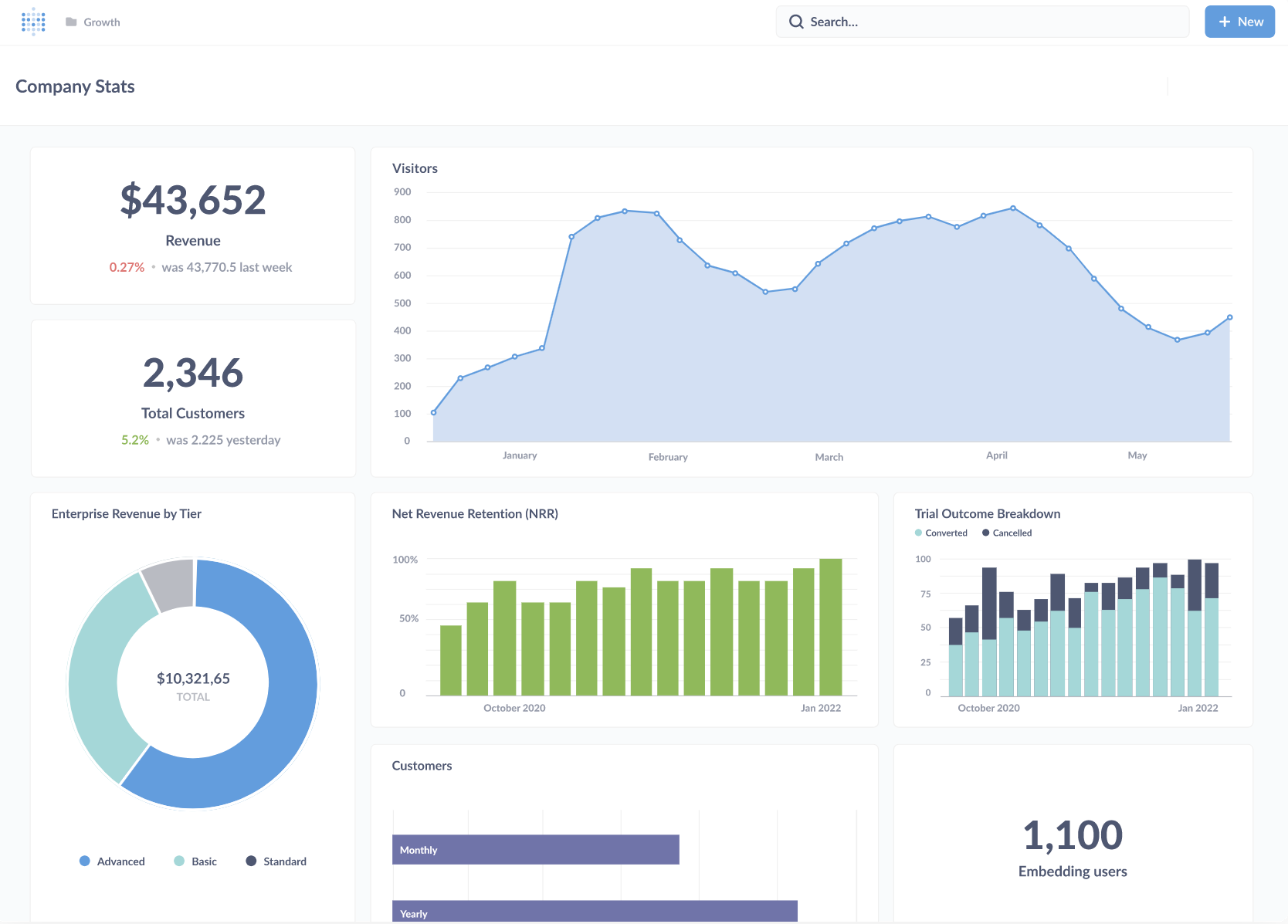A simple and extensible event tracking library for Flutter/Dart apps that logs events and sends them to your backend API.
Version: 0.2.1
Easily log user interactions and system events, then send them to your backend API for analytics, monitoring, or auditing.
Perfect for integrating with tools like Metabase for powerful data visualization and insight.
- 📱 Track custom events with attributes from your mobile apps
- 🔄 Offline support with automatic syncing when connectivity returns
- 🔒 API key authentication for secure event reporting
- 📊 Structured event data format for consistent analytics
- 📱 Platform detection (iOS/Android)
- ⏱️ Proper timezone handling with UTC offsets
- 🔄 Time-ordered UUIDv7 for better database performance
Add this package to your Flutter project by adding the following to your pubspec.yaml:
dependencies:
custom_events_tracker: ^0.2.1Then run:
flutter pub getInitialize the tracker service early in your app lifecycle (typically in main.dart):
import 'package:custom_events_tracker/custom_events_tracker.dart';
import 'package:flutter/material.dart';
Future<void> main() async {
WidgetsFlutterBinding.ensureInitialized();
await TrackerService().initialize(
endpointUrl: 'https://your-api-endpoint.com/events',
apiKey: 'your-api-key',
env: 'development', // or 'production', 'staging', etc.
userId: 123, // Optional: can be null or set later
);
runApp(MyApp());
}You can set or update the user ID at any time after initialization:
// Set user ID after login
TrackerService().setUserId(123);
// Remove user ID after logout
TrackerService().setUserId(null);Track events anywhere in your app by calling the trackEvent method:
// Basic event with type only
TrackerService().trackEvent(
type: 'button_click',
attributes: {},
);
// Event with custom attributes
TrackerService().trackEvent(
type: 'item_purchase',
attributes: {
'item_id': 'product_123',
'price': 19.99,
'currency': 'USD',
'quantity': 2,
},
);You can manually flush pending events if needed:
await TrackerService().flushPendingEvents();Events are automatically structured with the following fields:
| Field | Type | Description | Example |
|---|---|---|---|
id |
String | Time-ordered UUIDv7 | "018884e8-5c13-7eef-9c21-986bb5c0e725" |
type |
String | Event type | "button_click" |
attributes |
Map<String, dynamic> | Custom attributes | {"price": 19.99} |
source |
String | Always "mobile" | "mobile" |
platform |
String | "android" or "ios" | "android" |
userId |
int? | Optional user ID | 123 or null |
userTime |
String | ISO 8601 timestamp | "2025-06-16T12:23:07+02:00" |
timezone_offset |
int | Hours from UTC | 2 or -5 |
env |
String | Environment | "production" |
This package uses UUIDv7 (time-ordered UUID) for event IDs, which provides several benefits:
- Natural temporal ordering
- Improved database indexing performance
- Maintains uniqueness while being time-based
- Better for distributed systems
- Events are created with a unique ID and timestamped when tracked
- When online, events are immediately sent to your backend
- When offline, events are stored in a local Hive CE database
- When connectivity returns, queued events are automatically sent
- Failed sends are automatically queued for retry
This package uses:
- Hive CE for offline storage
- connectivity_plus for network detection
- http for API requests
- uuid for generating unique event IDs
Contributions are welcome! Please feel free to submit a Pull Request.
